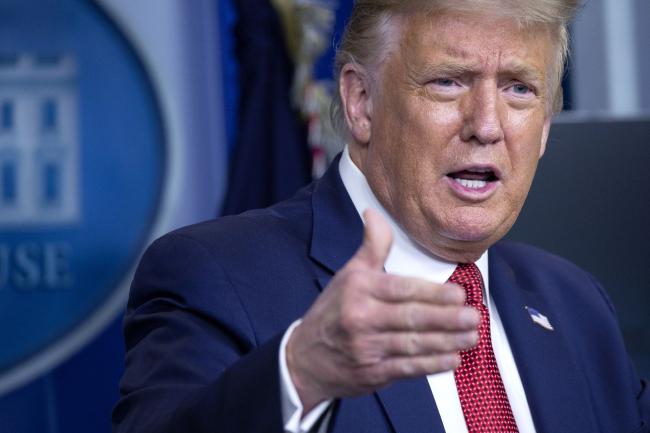(Bloomberg) -- President Donald Trump said he’s “very seriously” considering a capital gains tax cut, a move he decided against last September after saying it wouldn’t do enough to help the middle class.
“We’re looking at also considering a capital gains tax cut, which would create a lot more jobs,” Trump said Monday at a White House news conference.
The president can’t unilaterally cut the 20% long-term capital gains rate without Congress, but some advisers tell him he could issue an executive order that would slash tax bills for investors when they sell assets. The move, known as indexing capital gains to inflation, adjusts the original purchase price of an asset when it is sold so no tax is paid on appreciation tied to inflation.
Revamping capital gains taxes through a rule or executive order likely would face legal challenges, a concern that reportedly prompted former President George H.W. Bush’s administration to drop a similar plan.
Read more: The Tax Biden Wants to Double and Trump Would Slash: QuickTake
Trump, facing an impasse on Capitol Hill over coronavirus relief, has recently tapped his presidential authority to bypass Congress. Trump issued an executive directive on Saturday that would delay the deadline to submit payroll taxes for millions of workers until the end of the year. He said he hopes Congress will forgive those tax debts, but absent legislation, those payments will still be required by the extended due date.
Trump had previously considered indexing capital gains to inflation after being urged to do so by some conservatives including Senator Ted Cruz and Americans for Tax Reform President Grover Norquist, but ruled out the idea last year saying “it’s not something I love.”
Most of the benefits would go to high-income households, with the top 1% receiving 86% of the benefit, according to estimates in 2018 by the Penn Wharton Budget Model. The policy could reduce tax revenue by $102 billion over a decade, the model found.
Trump also said he was considering a “cut in the middle-income income tax.” Congress would have to pass legislation to make any reductions to tax rates, which is unlikely to happen before the end of the year.
Treasury Secretary Steven Mnuchin said Monday that he’s spoken with “several Democrats,” but not House Speaker Nancy Pelosi or Senate Democratic leader Chuck Schumer since their last negotiating session ended Friday without any breakthrough.
(Updates with Mnuchin on stimulus talks in final paragraph. An earlier version corrected the spelling of Norquist’s last name in sixth paragraph.)
©2020 Bloomberg L.P.

